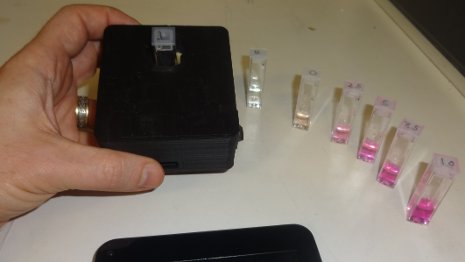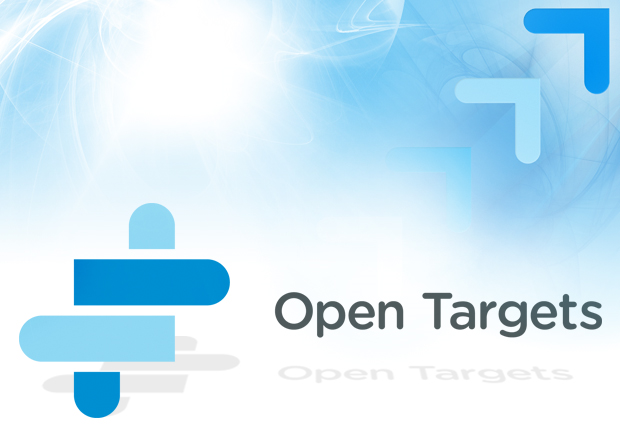open science
See the following -
Open Source Tech Revolutionizes Water Pollution Testing Equipment
 High nitrate levels in water cause the dead zones in the world’s largest deltas. Using too much nitrogen fertilizer wastes resources and leads to nitrate in runoff and water wells and an excess of nitrate in drinking water is a health hazard to infants and harmful to many animals. Current portable nitrate testers range in price and accuracy, from ballpark data at low price points to several hundred dollars for a handheld photometer. This new design is palm-sized, interfaces with a free Android app, costs less than $65 to manufacture and uses green chemistry for a safer and more accurate testing procedure. “This is a Popeye-approved reagent methodology,” Pearce jokes, adding that the enzyme used in the test kit is found in spinach and other leafy greens. “We’re replacing a toxic heavy metal with something that you eat every day in your salad.”
High nitrate levels in water cause the dead zones in the world’s largest deltas. Using too much nitrogen fertilizer wastes resources and leads to nitrate in runoff and water wells and an excess of nitrate in drinking water is a health hazard to infants and harmful to many animals. Current portable nitrate testers range in price and accuracy, from ballpark data at low price points to several hundred dollars for a handheld photometer. This new design is palm-sized, interfaces with a free Android app, costs less than $65 to manufacture and uses green chemistry for a safer and more accurate testing procedure. “This is a Popeye-approved reagent methodology,” Pearce jokes, adding that the enzyme used in the test kit is found in spinach and other leafy greens. “We’re replacing a toxic heavy metal with something that you eat every day in your salad.”
- Login to post comments
Open Source Tools Provide An Economic Advantage For Science
 Free and open source software (FOSS) and the distributed digital manufacturing of free and open source hardware (FOSH) have shown great promise for developing custom scientific tools. For some time now, FOSH has provided scientists a high return on investment. In fact, my previous research in the Open Source Labreported substantial economic savings from using these technologies. However, the open source design paradigm has since grown by orders of magnitude; now, there are examples of open source technology for science in the vast majority of disciplines, and several resources, including the Journal of Open Hardware, are dedicated to publishing them.
Free and open source software (FOSS) and the distributed digital manufacturing of free and open source hardware (FOSH) have shown great promise for developing custom scientific tools. For some time now, FOSH has provided scientists a high return on investment. In fact, my previous research in the Open Source Labreported substantial economic savings from using these technologies. However, the open source design paradigm has since grown by orders of magnitude; now, there are examples of open source technology for science in the vast majority of disciplines, and several resources, including the Journal of Open Hardware, are dedicated to publishing them.
- Login to post comments
Open Targets: New Name, New Data
 Following the successful launch of its Target Validation platform at the end of 2015, the Centre for Therapeutic Target Validation has released its first open experimental datasets. Now renamed Open Targets, the pioneering public–private initiative remains committed to speeding up the discovery of new medicines. Open Targets projects use genome-scale experiments and analysis to provide evidence on the biological validity of therapeutic targets – and to glean insights into the likely effectiveness of pharmacological intervention on these targets...
Following the successful launch of its Target Validation platform at the end of 2015, the Centre for Therapeutic Target Validation has released its first open experimental datasets. Now renamed Open Targets, the pioneering public–private initiative remains committed to speeding up the discovery of new medicines. Open Targets projects use genome-scale experiments and analysis to provide evidence on the biological validity of therapeutic targets – and to glean insights into the likely effectiveness of pharmacological intervention on these targets...
- Login to post comments
Open-Source Science Helps Father's Genetic Quest
One tiny flaw in one gene in one little girl. That explains why Beatrice Rienhoff, 8, is so lean and leggy. But it took the communal contributions of many researchers - in an open-ended, open-source scientific search, led by her father - to solve Bea's singular mystery. Read More »
- Login to post comments
OpenAIRE2020: A New Horizon for Open Science
The wealth of the European Union's scientific research is to be made open to all. A year after the start of the EC's Horizon 2020 framework programme, OpenAIRE enters a new phase of funding with a continuation project: OpenAIRE2020, starting in January 2015. The initiative will implement the H2020 Open Access policies and mandates for publications and will be one of the key European infrastructures supporting the EC's Research Data Pilot.
- Login to post comments
Protein Map is an Open Resource for Health Research
A decade after the completion of the blueprint of the human genome, the Human Protein Atlas program on Thursday launched a tissue-based atlas covering the genome's protein complement. Based on 13 million annotated images, an interactive database has been created to show the distribution of proteins in all major tissues and organs in the human body.
- Login to post comments
Recursion Releases Open Source Data from Largest Ever Dataset of Biological Images, Inviting Data Science Community to Develop New and Improved Machine Learning Algorithms for the Life Sciences Industry
 Recursion, a Fast Company "Most Innovative Company" and leader in the artificial intelligence for drug discovery movement, today announced it will open-source a glimpse of the massive biological dataset the company has been building for more than five years. At more than two petabytes, and across more than 10 million different biological contexts, Recursion's data is the world's largest image-based dataset designed specifically for the development of machine learning algorithms in experimental biology and drug discovery.
Recursion, a Fast Company "Most Innovative Company" and leader in the artificial intelligence for drug discovery movement, today announced it will open-source a glimpse of the massive biological dataset the company has been building for more than five years. At more than two petabytes, and across more than 10 million different biological contexts, Recursion's data is the world's largest image-based dataset designed specifically for the development of machine learning algorithms in experimental biology and drug discovery.
- Login to post comments
Reinventing Discovery On The Way To The Sage Congress
I’m in San Francisco for the Sage Commons Congress, and am excited to be able to contribute. [...] To salvage the 13 hours I read Michael Nielsen’s Reinventing Discovery, finally. It’s testament to the quality of the writing that I glided through it in one sitting (I did have a window seat)... Read More »
- Login to post comments
Research Transparency: 5 Questions about Open Science Answered
 Open science is a set of practices designed to make scientific processes and results more transparent and accessible to people outside the research team. It includes making complete research materials, data and lab procedures freely available online to anyone. Many scientists are also proponents of open access, a parallel movement involving making research articles available to read without a subscription or access fee...
Open science is a set of practices designed to make scientific processes and results more transparent and accessible to people outside the research team. It includes making complete research materials, data and lab procedures freely available online to anyone. Many scientists are also proponents of open access, a parallel movement involving making research articles available to read without a subscription or access fee...
- Login to post comments
Sage Bionetworks Advocates for Open Systems in Health Research
 Sage Bionetworks, a nonprofit biomedical research organization, continues its work to redefine the way in which health data is gathered, shared and used through the use of open systems, incentives and norms. In a Nature commentary published today, a set of governing principles for digital health data analysis that are designed to maximize the contribution of large-scale digital data to advancing medical care are described. This commentary was co-authored by John Wilbanks, Chief Commons Officer at Sage Bionetworks and Eric Topol, MD, Director of the Scripps Translational Science Institute, and Chief Academic Officer of Scripps Health. The two work together on the NIH-funded Precision Medicine Initiative that was announced earlier this month.
Sage Bionetworks, a nonprofit biomedical research organization, continues its work to redefine the way in which health data is gathered, shared and used through the use of open systems, incentives and norms. In a Nature commentary published today, a set of governing principles for digital health data analysis that are designed to maximize the contribution of large-scale digital data to advancing medical care are described. This commentary was co-authored by John Wilbanks, Chief Commons Officer at Sage Bionetworks and Eric Topol, MD, Director of the Scripps Translational Science Institute, and Chief Academic Officer of Scripps Health. The two work together on the NIH-funded Precision Medicine Initiative that was announced earlier this month.
- Login to post comments
Sage Bionetworks Releases First-of-its-Kind Data from Parkinson’s iPhone Study
 Sage Bionetworks, a nonprofit biomedical research organization, today released an unparalleled dataset that captures the everyday experiences of more than 9,500 people to help speed scientific progress toward treatments for people with Parkinson’s disease. The dataset, which consists of millions of data points collected on a nearly-continuous basis through the iPhone app mPower, will provide researchers with unprecedented insight into the daily changes in symptoms and effects of medication for people with Parkinson’s.
Sage Bionetworks, a nonprofit biomedical research organization, today released an unparalleled dataset that captures the everyday experiences of more than 9,500 people to help speed scientific progress toward treatments for people with Parkinson’s disease. The dataset, which consists of millions of data points collected on a nearly-continuous basis through the iPhone app mPower, will provide researchers with unprecedented insight into the daily changes in symptoms and effects of medication for people with Parkinson’s.
- Login to post comments
Sage Commons Congress 2012
I was at the Sage Commons Congress the last few days. Meetings should be full of challenging new ideas and full of spontaneous discussion. [...] This congress was very interesting, driven by the passion of those people taking part to do science in new ways. Read More »
- Login to post comments
Scientists Manage Research with Open Source Zotero
Citation management tools are an easy way to organize electronic citations and PDFs into a single interface. They also allow you to export citations as a formatted bibliography. Many of them will also interact with a word processor for in-text citations. The two biggest cost-free, client-based tools are Mendeley and Zotero. I’m going to focus on Zotero, which is free and open source. It’s also the tool I like most for handling my own citations...
- Login to post comments
Self-Preservation Chokes Open Science, Kills The Patient
Arguably the one area that stands to benefit the most from open and shared data is science. Yet researchers are reluctant to do it. Why? Because the reward model for scientific discovery is chaining them to dollars they can't pocket otherwise. [...] Read More »
- Login to post comments
Silicon Therapeutics Announces Recipient of the First Open Science Fellowship
![]() Silicon Therapeutics, an integrated computational drug discovery company creating novel small molecule therapeutics for diseases with challenging protein targets, is pleased to announce that the first Open Science Fellowship will be awarded the laboratory of Dr. John D. Chodera at Memorial Sloan Kettering Cancer Center (MSK). The fellowship is designed to advance the open science movement within the drug discovery industry, facilitating access to scientific knowledge, methods, and data. Patrick Grinaway, a graduate student in the Chodera Lab, will lead the development efforts of the project, entitled “Development of efficient open source free energy-based lead optimization algorithms"...
Silicon Therapeutics, an integrated computational drug discovery company creating novel small molecule therapeutics for diseases with challenging protein targets, is pleased to announce that the first Open Science Fellowship will be awarded the laboratory of Dr. John D. Chodera at Memorial Sloan Kettering Cancer Center (MSK). The fellowship is designed to advance the open science movement within the drug discovery industry, facilitating access to scientific knowledge, methods, and data. Patrick Grinaway, a graduate student in the Chodera Lab, will lead the development efforts of the project, entitled “Development of efficient open source free energy-based lead optimization algorithms"...
- Login to post comments